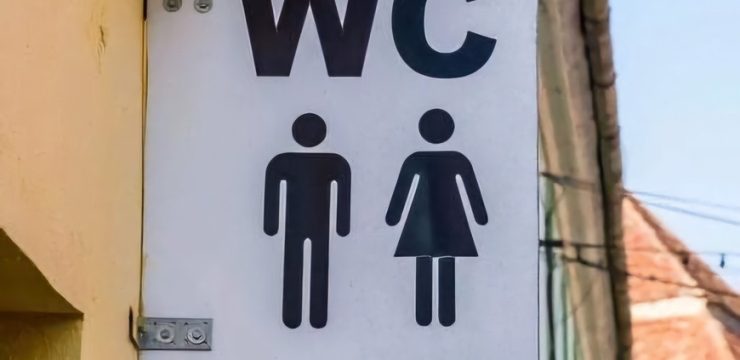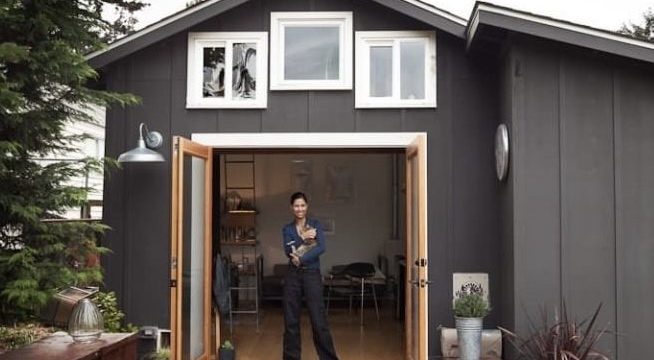In recent years, discussions around diversity and representation have intensified across various sectors of society, including the entertainment industry. One of the latest topics in this conversation revolves around the beloved 90s sitcom Friends. Quinta Brunson, star of the hit show Abbott Elementary, has recently joined this dialogue, pointing out the glaring absence of Black characters on Friends.

During her appearance as a host on Saturday Night Live, Brunson used her platform to address this issue head-on. In her opening monologue, she humorously yet sharply contrasted the diversity in her own show, Abbott Elementary, with the lack of representation on Friends. Her observations sparked reflection on how shows from previous decades often fell short in reflecting the true diversity of society.
A Stark Contrast in Representation
Abbott Elementary, set in a predominantly Black, state-funded elementary school in Philadelphia, offers a refreshing and authentic look at diverse characters in their everyday lives. Brunson’s reference to her own show highlighted how much progress has been made in diversifying television. In contrast, Friends, set in New York City—a city known for its cultural melting pot—failed to represent that same diversity. The absence of Black characters in a show about life in such a diverse city seems more obvious in today’s climate of increased awareness and demand for inclusivity.
In her trademark witty style, Brunson joked, “I wanted to be on SNL back in the day, but the audition process seemed long – so instead, I just created my own TV show, made sure it became really popular, won a bunch of Emmys, and then got asked to host. So much easier, so much easier.” This quip was met with laughter from the audience, but it served as a prelude to a deeper critique. She continued, “It’s a network sitcom like, say, Friends. Except, instead of being about a group of friends, it’s about a group of teachers. Instead of New York, it’s in Philadelphia, and instead of not having Black people, it does.”
Brunson’s playful remarks sparked conversations beyond the laugh lines, drawing attention to the cultural significance of what shows choose to include—and, by extension, exclude—in their portrayals of everyday life.
A Response from the Friends Co-Creator
Brunson’s comments have even reached the creators behind Friends. Marta Kauffman, the co-creator of the iconic show, has openly expressed regret over the lack of diversity in the series. In a public statement, Kauffman admitted feeling embarrassed by the show’s failure to represent a more inclusive cast, saying, “I’ve learned a lot in the last 20 years. Admitting and accepting guilt is not easy. It’s painful looking at yourself in the mirror. I’m embarrassed that I didn’t know better 25 years ago.”
Kauffman went beyond words to take action, pledging $4 million to support African and African-American studies at a university. She added, “It took me a long time to begin to understand how I internalized systemic racism. I’ve been working really hard to become an ally, an anti-racist. And this seemed to me to be a way that I could participate in the conversation from a white woman’s perspective.”
Kauffman’s reflections underscore how even beloved, iconic shows like Friends are not immune to criticism for their lack of diversity and representation. Her willingness to reflect and take action signals a shift in the industry, where creators are being held accountable for the stories they tell and the people they choose—or fail—to include.
Moving the Conversation Forward
While Friends remains a cherished show for many, Brunson’s observations and Kauffman’s response reveal that the conversation around diversity in television is far from over. In fact, it has evolved. Today’s audiences demand more inclusive representation that reflects the world’s true makeup. As Brunson humorously yet poignantly pointed out, it’s no longer enough to create shows centered around homogeneous groups, especially in settings like New York City or Philadelphia, where diversity is not only present but essential.
The conversation is not just about correcting the past but about shaping the future of entertainment. Shows like Abbott Elementary demonstrate how diverse representation can enrich storytelling, offering viewers more authentic narratives that reflect the varied lives and experiences of people from all backgrounds.
As creators and audiences alike continue to push for inclusivity, the entertainment industry has a responsibility to reflect the changing times. The importance of representation cannot be overstated, and as Brunson and Kauffman’s dialogue shows, the industry is slowly but surely beginning to reckon with its shortcomings.





